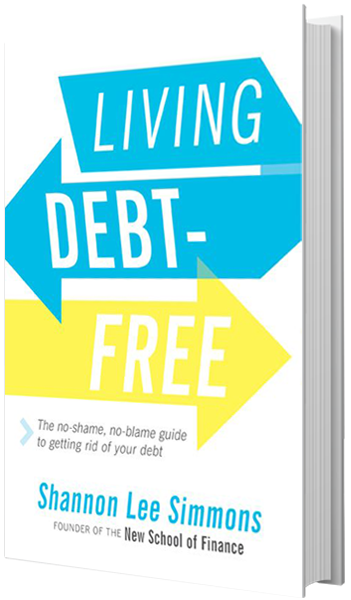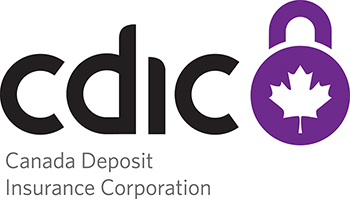This episode of the More Money Podcast is supported by Canada Deposit Insurance Corporation (CDIC). To learn how your savings are protected thanks to CDIC, visit CDIC.ca. Or check your CDIC knowledge by taking this free quiz at DepositInsuranceEndurance.com.
I’ve got another repeat guest on the show, who first appeared on the More Money Podcast this time last year in episode 151 to promote her first book Worry-Free Money. I’m talking about the lovely Shannon Lee Simmons, and she’s back with her second book all about debt called Living Debt-Free.
Since her first book was essentially the feel-good personal finance book we were all looking for, Shannon’s second book does the same thing for debt. There are so many negative emotions surrounding debt, such as shame and guilt. Debt is bad right? Well, guess what…real people have debt. And they shouldn’t feel shame or guilt for having it. Shame and guilt aren’t exactly motivators to do anything, so why would we think making people feel bad about their debt will help them get out of it?
Having a Positive Mindset for Debt Repayment Is Key
Instead, Shannon shares stories and advice on how to tackle your debt by adopting a new positive mindset and asking yourself some of these helpful questions:
- What is your debt holding you back from in life?
- What kind of life could you have without this debt?
- What’s really important to you?
- What are your core life values?
Having clear answers to these questions will help you stay on track to paying off your debt. Yes, strategies like the debt snowball and debt avalanche are helpful too, but from my experience and Shannon’s, people are more likely to get back into debt or stop their debt repayment plan because they lack positive reinforcement and motivation.
By thinking with a more positive mindset, such as “What could I add to my life once I’m debt-free?” instead of being critical of your current situation like “You’re not as well off as your peers because of your debt,” you’ll be able to change your financial picture quicker than you ever thought possible. Not only that, you’ll be able to stay out of debt because you’ll have a clearer vision of your overall finances.
Emergency Funds Are for Emergencies
Recently, there was a question that popped up in my Facebook group asking whether it was a good idea to use Emergency Fund money to pay off debt. Shannon and I both agreed that Emergency Funds should be reserved for emergencies only, not debt. Lack of emergency savings is one of the main reasons people fall into debt. Something unexpected happens, like their car breaks down, they don’t have the money to pay for it, they use credit to fix their car, now they’re in debt and can only afford the minimum payments.
To avoid this cycle, save up to 3 to 6 months of your living expenses and put it in a high-interest savings account. Then don’t touch it until a real emergency happens. And once you touch it, make sure to pay that money back so it’s never empty.
Shannon also suggests having two Emergency Funds. One is for real emergencies that you don’t touch unless you absolutely need to. One is more of a slush fund that you are constantly contributing to, but dipping into when you need cash for unexpected expenses (that don’t fall into the emergency category).
The Only Way to Avoid Over-Spending with Your Credit Card
There are only a few ways to avoid overspending with your credit card. One way is to use debit or cash for all of your variable expenses, and just link your credit card to any of your regular fixed expenses like your cable bill, phone bill, and utilities.
Or, if you do like to use your credit card for your variable spending, set its limit to the exact amount you’ve budgeted for variable expenses. Then, as soon as you make a purchase with your credit card, move money from your chequing account to pay off your credit card.
That’s it! There really isn’t any other magic way to do it. Believe me, I’ve tried them and so has Shannon and these are the ones that work!
 Grab a Copy of Living Debt-Free
Grab a Copy of Living Debt-Free
There’s a no-shame, no-blame way to crush your debt, and you can learn how by grabbing a copy of Shannon Lee Simmons’ new book Living-Debt Free. I’d also recommend grabbing her first book Worry-Free Money, it’s one of my favourites!
Buy a copy of Living Debt-Free
Buy a copy of Worry-Free Money
Follow Shannon Lee Simmons
- NewSchoolofFinance.com
- Twitter: @nschoolfinance
- Instagram: @nschoolfinance
- Facebook: New School of Finance


+ show Comments
- Hide Comments
add a comment